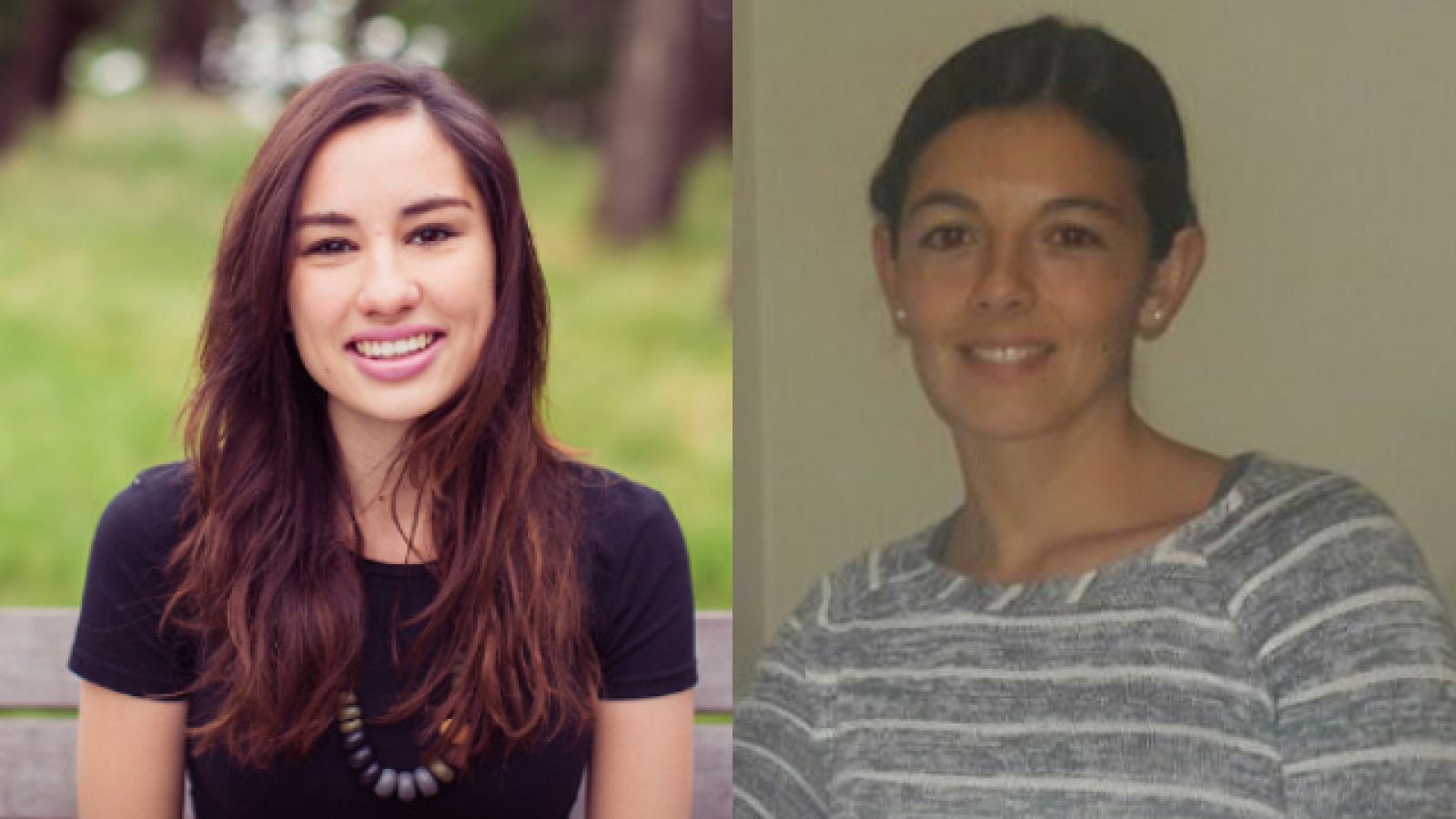Social science graduating students are helping to shape a better world

Rachael Stevens (left) and Pilar Rioseco. Images: Tracey Lee Photography & supplied.
Two female social scientists graduating from The Australian National University this week are using their newly-acquired skills to help young Australians, and retired ones, with eating disorder-related anxieties and social connectedness.
Rachael Stevens, the 2016 ACT Young Woman of the Year Award, will receive a Bachelor of Arts (Sociology), while Pilar Rioseco will obtain her Doctor of Philosophy from the School of Demography.
“I’m just astounded to be graduating,” says Rachael, who was hospitalised aged 15 and at risk of dying because of an eating disorder.
“I gave up so many times, but it proved to me that you can get past a mental illness and there is so much to live for.”
Rachael, who fully recovered after multiple hospitalisations for depression and anorexia as a teen, has dedicated her young life to helping others by sharing her experience with young people. In 2017 she’ll be on a speaking tour of primary and high schools throughout Australia.
Pilar (Master of Social Research ’09), meanwhile, studied the effects of social connectedness and retirement, as part of the School of Demography’s ARC-funded Social Networks and Ageing Project (SNAP).
“When I joined the project, I looked at the literature on retirement and realised that there was not much research on the influence of people’s social relationships on their retirement decisions,” she recalls.
“I was interested in looking at how the characteristics and quality of social relationships could play a role in people’s retirement.
“For example, do people who have many friends and participate in social activities regularly plan to retire earlier than those who do not have an active social life? Does relationship quality change after retirement? Those sorts of questions.”
Pilar says highlights from her time at ANU include the friendships she made with fellow students and her supervisor, and the school’s annual trip to the Kioloa Coastal Campus on the NSW south coast.
“I am currently working at the Australian Institute of Family Studies in Melbourne doing research,” she explains.
“It has been a great opportunity to apply the many skills I developed during my PhD at ANU. I am also writing a couple of papers based on the SNAP project with my PhD supervisor, Dr Heather Booth, which is great.”
Rachael Stevens says a Vice-Chancellor’s leadership and influence course, led by Professor Richard Baker, gave her the confidence to “push a message of hope” in the community and boosted her advocacy.
“I’ve been accepted to do my Masters of Culture, Health and Medicine at ANU and will start in late January,” she says.
“I’d really love to do some research into suicide prevention and understand aspects of mental health a little deeper.
“I have the skill for asking questions because of my sociology degree, and now can ask more relevant questions.”